-
 Bitcoin
Bitcoin $76,444.7530
-3.77% -
 Ethereum
Ethereum $1,473.8355
-5.46% -
 Tether USDt
Tether USDt $0.9991
-0.08% -
 XRP
XRP $1.7965
-5.51% -
 BNB
BNB $553.4919
-0.36% -
 USDC
USDC $0.9999
-0.02% -
 Solana
Solana $105.2981
-1.74% -
 TRON
TRON $0.2303
0.81% -
 Dogecoin
Dogecoin $0.1422
-4.62% -
 Cardano
Cardano $0.5587
-4.41% -
 UNUS SED LEO
UNUS SED LEO $8.9866
1.01% -
 Toncoin
Toncoin $2.9933
-4.74% -
 Chainlink
Chainlink $10.9113
-4.81% -
 Stellar
Stellar $0.2215
-4.76% -
 Avalanche
Avalanche $16.1163
-3.29% -
 Sui
Sui $1.9371
-3.89% -
 Shiba Inu
Shiba Inu $0.0...01065
-6.69% -
 Hedera
Hedera $0.1469
-3.29% -
 MANTRA
MANTRA $6.2058
-1.53% -
 Dai
Dai $1.0000
0.01% -
 Bitcoin Cash
Bitcoin Cash $269.3457
-2.08% -
 Polkadot
Polkadot $3.3773
-5.87% -
 Litecoin
Litecoin $69.2204
-2.50% -
 Ethena USDe
Ethena USDe $0.9986
-0.01% -
 Bitget Token
Bitget Token $4.0180
-3.25% -
 Pi
Pi $0.5649
-4.50% -
 Hyperliquid
Hyperliquid $11.1928
-2.80% -
 Monero
Monero $195.3885
-4.41% -
 OKB
OKB $50.9235
-0.59% -
 Uniswap
Uniswap $4.7688
-6.95%
Is there a third-party audit of the mining income of cloud computing power mining platforms?
Lacking universally accepted auditing standards, independent verification of cloud mining platform profits is rare, leaving investors reliant on transparency and reputation rather than formal third-party audits to assess risk.
Mar 20, 2025 at 10:00 pm
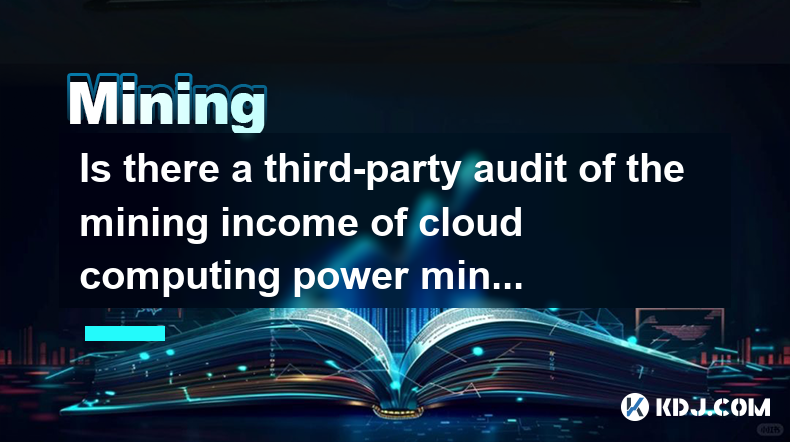
Key Points:
- The lack of universally accepted standards for auditing cloud mining income creates challenges in verifying reported profits.
- Third-party audits are rare in the cloud mining industry, due to factors like cost, complexity, and lack of regulatory pressure.
- Existing audits often focus on the platform's financial statements rather than individual miner returns.
- Investors should prioritize platforms with transparent operational data and strong reputations, even in the absence of formal third-party audits.
- Independent verification of hash rate allocation and payment accuracy remains a crucial, yet often unaddressed, concern.
Is There a Third-Party Audit of the Mining Income of Cloud Computing Power Mining Platforms?
The question of third-party audits for cloud mining platforms' income is complex. While some platforms may claim audits, the reality is that independent, comprehensive audits verifying individual miner returns are uncommon in this sector. This lack of widespread auditing stems from several interconnected factors.
The cryptocurrency market is relatively young and lacks universally accepted auditing standards specifically tailored for cloud mining operations. Traditional accounting practices don't always translate seamlessly to the unique characteristics of distributed ledger technology and mining processes. Developing and implementing robust auditing procedures for these platforms requires specialized expertise, further adding to the complexity.
The cost of conducting a thorough audit can be prohibitive for many smaller cloud mining platforms. A comprehensive audit requires significant resources, including expert cryptographers, blockchain analysts, and financial auditors, all of whom command substantial fees. This cost often outweighs the perceived benefits for some platforms, particularly those operating on smaller scales.
Furthermore, the decentralized and often opaque nature of the cloud mining industry makes auditing challenging. The verification of hash rate allocation to individual miners requires sophisticated technical expertise and access to the platform's internal systems. This access is often restricted for security reasons, hindering independent auditors' ability to perform their due diligence effectively.
Even when audits are conducted, their scope often focuses on the platform's overall financial statements rather than the individual mining income of each user. Such audits might verify the platform's revenue and expenses but may not delve into the granular details of hash rate distribution and payment accuracy for each individual miner. This leaves a critical gap in ensuring transparency at the user level.
The regulatory landscape surrounding cryptocurrency and cloud mining is still evolving. Many jurisdictions lack specific regulations mandating third-party audits for cloud mining platforms, reducing the pressure on platforms to undertake such costly and complex procedures. This regulatory vacuum further contributes to the lack of widespread adoption of independent audits.
Despite the lack of prevalent third-party audits, several factors can help investors assess the credibility of a cloud mining platform. Platforms with a transparent operational model, publicly available data on hash rate, and clear payment policies are generally considered more trustworthy. A strong reputation built on consistent performance and positive user reviews can also indicate a higher degree of reliability.
While the absence of a formal third-party audit doesn't automatically equate to fraudulent activity, it does highlight a significant risk for investors. The inherent complexity of the technology and the lack of standardized auditing practices create an environment where it is difficult to independently verify the reported mining income. Due diligence is crucial, involving thorough research into the platform's background, reputation, and operational transparency.
The absence of robust auditing mechanisms underscores the need for increased transparency and regulation within the cloud mining industry. Clearer guidelines and stricter regulatory frameworks could incentivize platforms to adopt more rigorous auditing practices, ultimately benefiting investors and enhancing the overall integrity of the market. This would also create a more level playing field for legitimate platforms and help weed out potentially fraudulent operations.
Frequently Asked Questions:
Q: If a cloud mining platform doesn't have a third-party audit, does that mean it's a scam?
A: Not necessarily. The absence of a third-party audit indicates a higher risk, but it doesn't automatically confirm fraudulent activity. Many factors beyond the presence of an audit influence a platform's legitimacy. Lack of transparency, negative user reviews, and unrealistic promises are stronger indicators of potential scams.
Q: What should I look for in a reputable cloud mining platform?
A: Prioritize platforms with transparent operational data, a publicly verifiable hash rate, clear payment policies, positive user reviews, and a proven track record. A strong online presence and readily available contact information also contribute to a platform's trustworthiness.
Q: How can I verify the mining income independently?
A: Independent verification is difficult without access to the platform's internal systems. You can try cross-referencing reported payouts with publicly available blockchain data, but this is limited and may not be conclusive. Monitoring the platform's hash rate and comparing it to the expected returns based on network difficulty can offer some insight, but it remains imperfect.
Q: Are there any organizations working towards standardizing audits for cloud mining platforms?
A: Currently, no single organization has established universally accepted standards for auditing cloud mining income. However, industry initiatives and regulatory bodies are increasingly focused on enhancing transparency and accountability within the cryptocurrency sector, which may eventually lead to the development of such standards.
Disclaimer:info@kdj.com
The information provided is not trading advice. kdj.com does not assume any responsibility for any investments made based on the information provided in this article. Cryptocurrencies are highly volatile and it is highly recommended that you invest with caution after thorough research!
If you believe that the content used on this website infringes your copyright, please contact us immediately (info@kdj.com) and we will delete it promptly.
- "Cardano (ADA) Price Could Dip Below $0.60, Following Previous Market Cycle"
- 2025-04-09 05:10:12
- BONK, the well-known meme coin, has risen over 35% in the last week, attracting meme coin investors in the market. So, what caused this rally?
- 2025-04-09 05:10:12
- Bitcoin (BTC) Investors May Not Exactly Feel It, but BTC Has Been a Relatively Good Bet
- 2025-04-09 05:05:12
- Donald's Bitcoin (DONBTC) Could Turn Early Investors into Multi-Millionaires, Like Shiba Inu (SHIB) and Dogecoin (DOGE) Did
- 2025-04-09 05:05:12
- 6 Upcoming Kraken Listings That Could Be the Next Big Thing in Crypto
- 2025-04-09 05:00:13
- COTI Unveils New Privacy-Focused Blockchain to Reshape Web3 Transactions
- 2025-04-09 05:00:13
Related knowledge
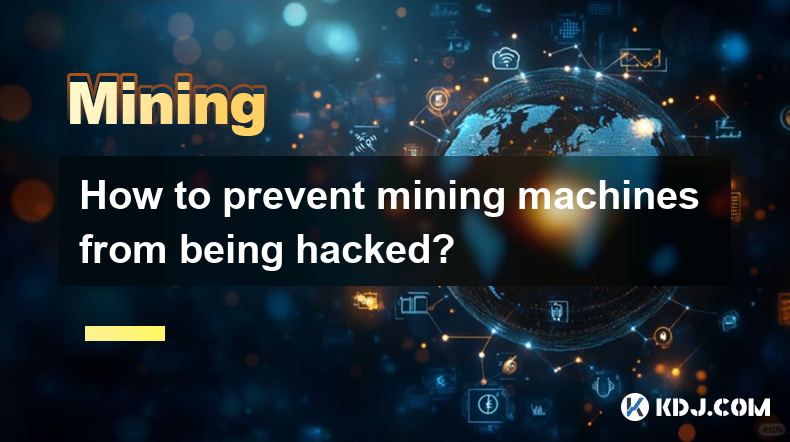
How to prevent mining machines from being hacked?
Apr 08,2025 at 09:00pm
In the world of cryptocurrency, mining machines play a crucial role in securing networks and validating transactions. However, these machines are also prime targets for hackers looking to exploit vulnerabilities for financial gain. Preventing mining machines from being hacked requires a multi-faceted approach that includes robust security measures, regu...
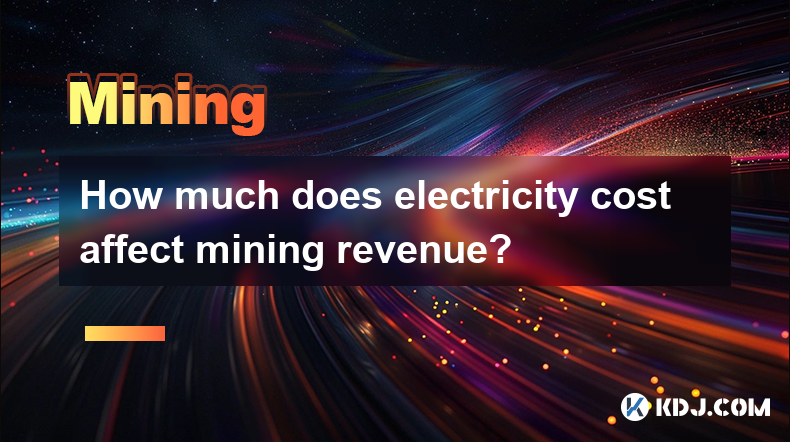
How much does electricity cost affect mining revenue?
Apr 08,2025 at 05:29pm
The cost of electricity plays a crucial role in determining the profitability of cryptocurrency mining. Mining revenue is directly impacted by the expenses incurred in running mining equipment, with electricity costs often being the most significant operational expense. Understanding how electricity costs affect mining revenue is essential for miners lo...
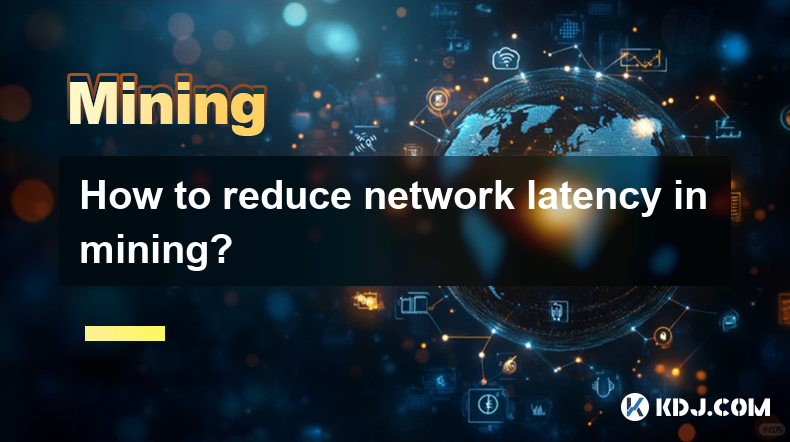
How to reduce network latency in mining?
Apr 09,2025 at 02:28am
Understanding Network Latency in MiningNetwork latency is a critical factor in the world of cryptocurrency mining. It refers to the time it takes for data to travel from its source to its destination across a network. In mining, lower latency can mean the difference between successfully adding a block to the blockchain and missing out on the reward. Red...

What is hashrate fluctuation?
Apr 08,2025 at 08:08pm
Hashrate fluctuation refers to the changes in the total computational power used by miners to process transactions and secure the blockchain network. This metric is crucial in the cryptocurrency world, particularly for networks like Bitcoin, Ethereum, and others that rely on proof-of-work (PoW) consensus mechanisms. Understanding hashrate fluctuation is...
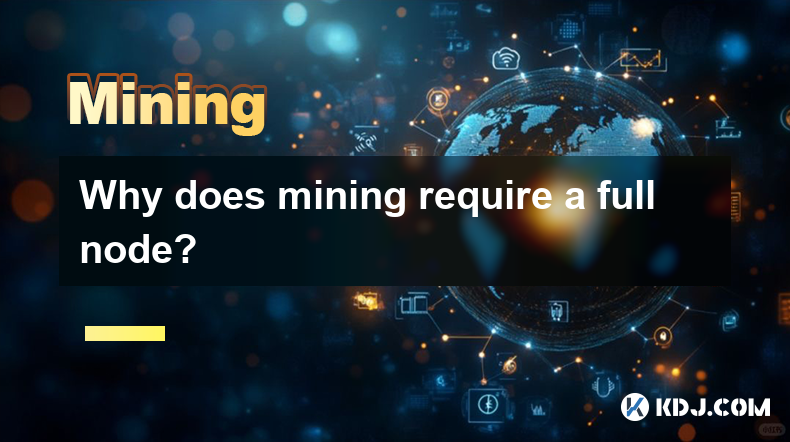
Why does mining require a full node?
Apr 08,2025 at 06:49pm
Mining in the cryptocurrency world is a complex process that involves verifying transactions and adding them to the blockchain. One of the key components required for mining is a full node. But why is a full node necessary for mining? Let's delve into the reasons and explore the intricacies of this requirement. What is a Full Node?A full node is a progr...
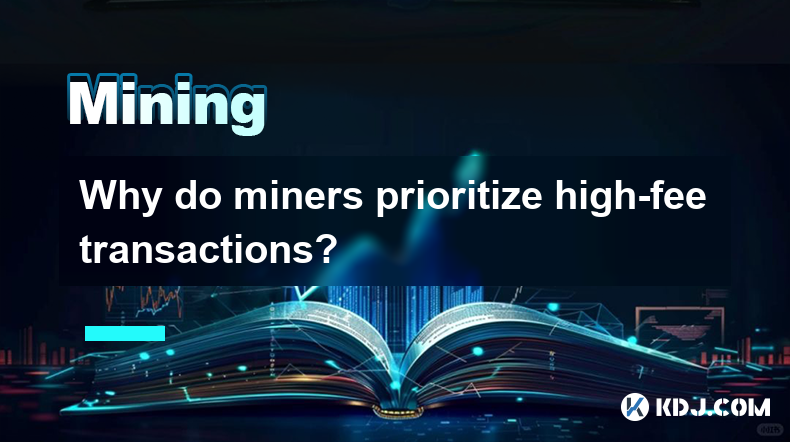
Why do miners prioritize high-fee transactions?
Apr 08,2025 at 05:01pm
Miners in the cryptocurrency ecosystem, particularly in networks like Bitcoin, play a crucial role in validating and adding transactions to the blockchain. One of the key factors that influence their decision-making process is the transaction fee associated with each transaction. Miners prioritize high-fee transactions primarily because these fees direc...

How to prevent mining machines from being hacked?
Apr 08,2025 at 09:00pm
In the world of cryptocurrency, mining machines play a crucial role in securing networks and validating transactions. However, these machines are also prime targets for hackers looking to exploit vulnerabilities for financial gain. Preventing mining machines from being hacked requires a multi-faceted approach that includes robust security measures, regu...

How much does electricity cost affect mining revenue?
Apr 08,2025 at 05:29pm
The cost of electricity plays a crucial role in determining the profitability of cryptocurrency mining. Mining revenue is directly impacted by the expenses incurred in running mining equipment, with electricity costs often being the most significant operational expense. Understanding how electricity costs affect mining revenue is essential for miners lo...

How to reduce network latency in mining?
Apr 09,2025 at 02:28am
Understanding Network Latency in MiningNetwork latency is a critical factor in the world of cryptocurrency mining. It refers to the time it takes for data to travel from its source to its destination across a network. In mining, lower latency can mean the difference between successfully adding a block to the blockchain and missing out on the reward. Red...

What is hashrate fluctuation?
Apr 08,2025 at 08:08pm
Hashrate fluctuation refers to the changes in the total computational power used by miners to process transactions and secure the blockchain network. This metric is crucial in the cryptocurrency world, particularly for networks like Bitcoin, Ethereum, and others that rely on proof-of-work (PoW) consensus mechanisms. Understanding hashrate fluctuation is...

Why does mining require a full node?
Apr 08,2025 at 06:49pm
Mining in the cryptocurrency world is a complex process that involves verifying transactions and adding them to the blockchain. One of the key components required for mining is a full node. But why is a full node necessary for mining? Let's delve into the reasons and explore the intricacies of this requirement. What is a Full Node?A full node is a progr...

Why do miners prioritize high-fee transactions?
Apr 08,2025 at 05:01pm
Miners in the cryptocurrency ecosystem, particularly in networks like Bitcoin, play a crucial role in validating and adding transactions to the blockchain. One of the key factors that influence their decision-making process is the transaction fee associated with each transaction. Miners prioritize high-fee transactions primarily because these fees direc...
See all articles






















































































